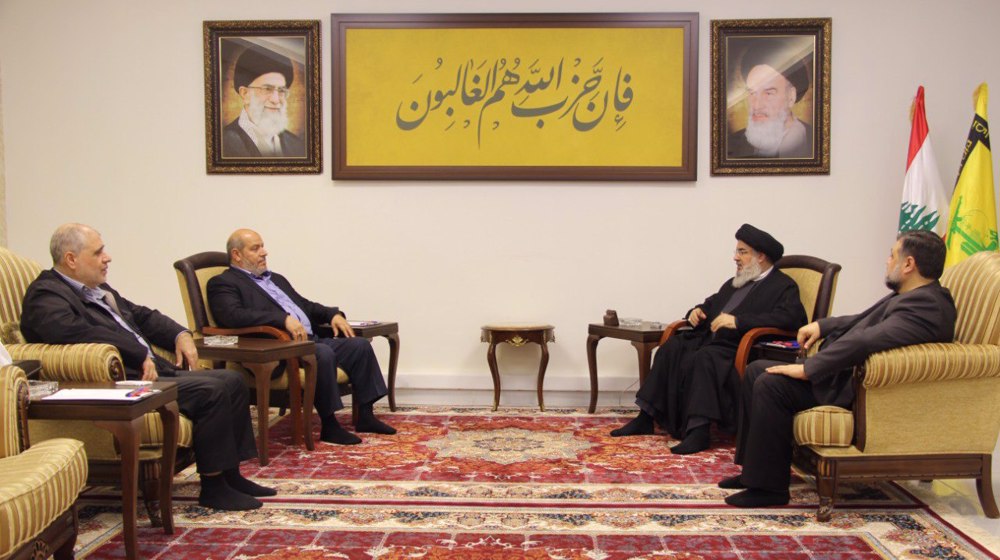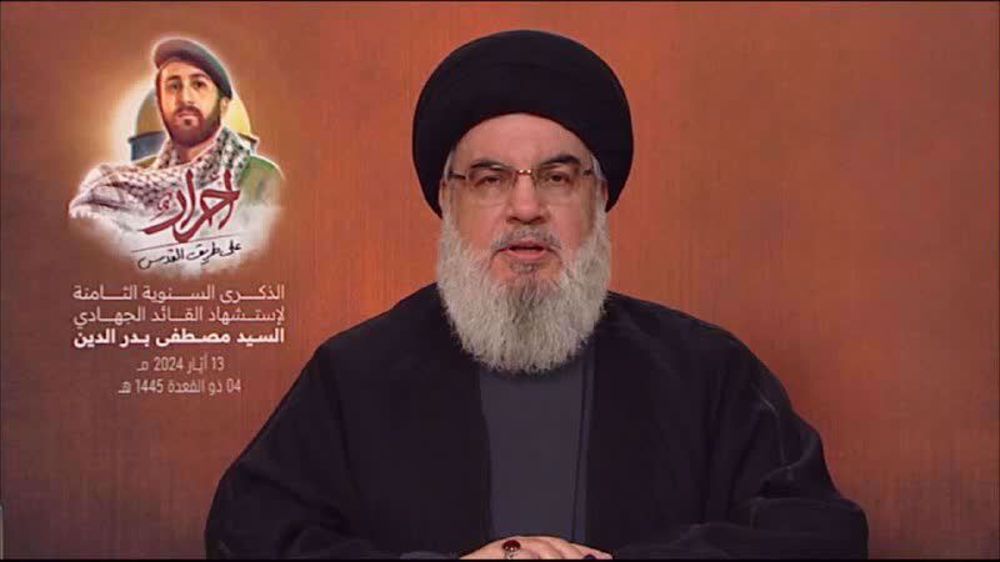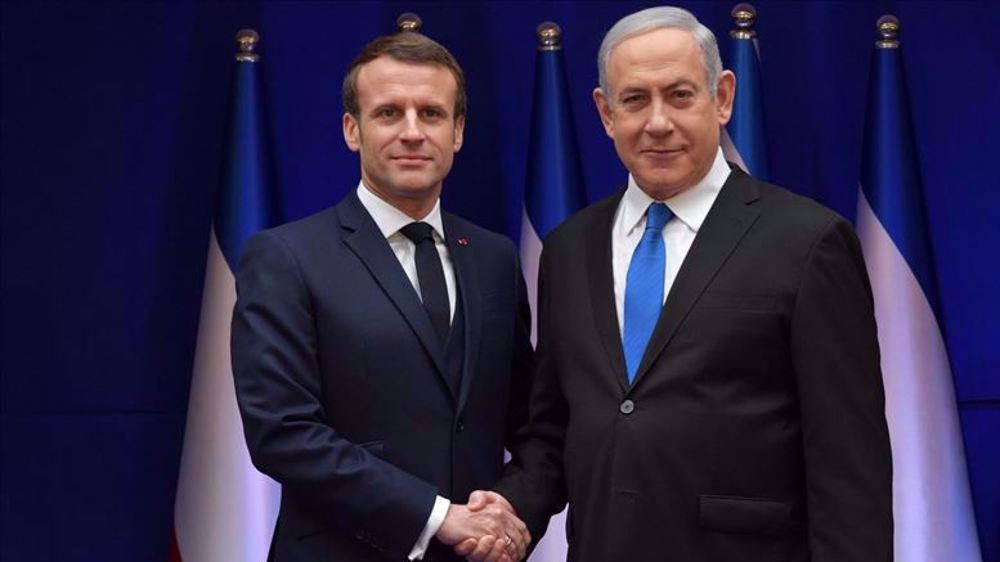Hezbollah leader underlines unity among resistance groups until al-Aqsa Storm goals achieved
The secretary general of Lebanon’s Hezbollah resistance movement has underscored the significance of unity among resistance groups until achieving final victory in Operation al-Aqsa Storm, the largest anti-Israel operation by Palestinians in decades.
Sayyed Hassan Nasrallah made the remarks in a meeting in Beirut on Wednesday as he received a leading delegation from Hamas, headed by Khalil al-Hayya, a member of the Palestinian resistance movement’s Political Bureau, and Osama Hamdan, who represents Hamas in the Lebanese capital.
Lebanon's al-Mayadeen television network said the two sides exchanged views after an extensive and in-depth assessment of the developments taking place in the besieged Gaza Strip and the occupied territories, also discussing the course of the recent ceasefire talks and the outcome of international political positions and pro-Palestine student movements across the world.
Nasrallah placed a premium on the “unity of positions and the continuation of making all political and popular field efforts in order to achieve the honorable goals sought by the al-Aqsa Strom, and to achieve the coming and promised victory, no matter the sacrifices."
Nasrallah also praised and underlined the level of cooperation and solidarity existing between the various fronts and movements of the Axis of Resistance.
In a televised speech on Monday, the Hezbollah chief affirmed that the Lebanese resistance movement is continuing “quantitatively and qualitatively” its anti-Israel operations in support of Palestinians in the Gaza Strip until the regime’s aggression stops.
Nasrallah said Israel is seeking to invade the southern Gazan city of Rafah, where nearly half a million have sought refuge from the regime’s brutal attacks on other parts of the territory, in an attempt to cover up its defeat in Gaza.
The occupying Israeli regime has repeatedly launched attacks on southern Lebanon since October 7, when it unleashed a genocidal war in Gaza that has claimed the lives of over 35,000 Palestinians, most of them women and children.
Israel waged the devastating war on the Gaza Strip in October after Hamas launched Operation al-Aqsa Storm in the occupied territories in retaliation for the Tel Aviv regime’s incessant crimes against Palestinians in the occupied West Bank.
As a retaliatory measure for the Gaza war, Hezbollah has been carrying out almost daily rocket attacks on Israeli positions.
Yemen's armed forces and Iraqi resistance groups have also launched various attacks on the Israeli-occupied territories in reprisal for the regime's months-long war on Gaza.
Belgium files to intervene in South Africa’s ICJ genocide case against Israel
Netanyahu appears in court for 65th time in ongoing corruption trial
Iran's government submits $111bn budget bill for year 1405
1.6 million Palestinians face acute food insecurity in Gaza: UNRWA
VIDEO | Free the Palestine hunger strikers in British jails ft. Calla Walsh
VIDEO | Press TV's news headlines
Iranian missile pierced window of Israeli intel chief's office in June, says senior general
VIDEO | Paper state politics











 This makes it easy to access the Press TV website
This makes it easy to access the Press TV website